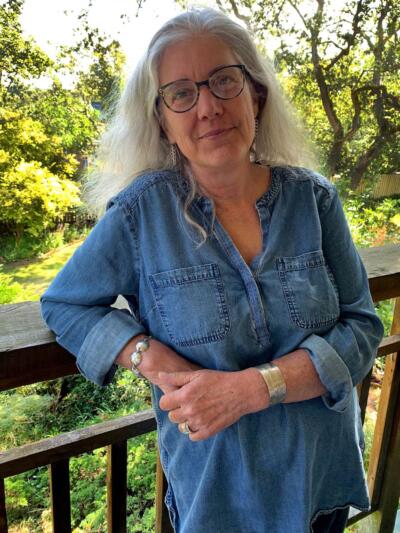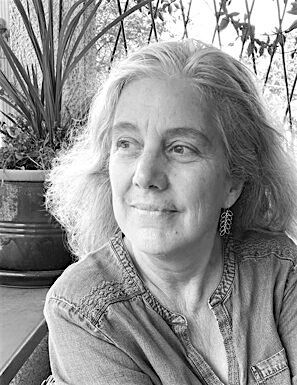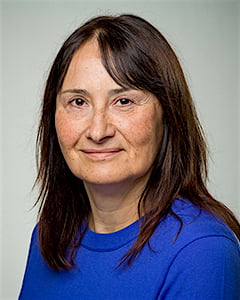1448 Unwed mothers & redacted files
Atlas of Roots
by Beth Kope
Qualicum Beach: Caitlin Press, 2021
$18.00 / 9781773860510
Reviewed by Candace Fertile
*
 What are the roots of an identity for the adopted? In a series of sensitive poems, Beth Kope explores the world of the adopted, from her own quest to find her birth parents to an imagined reality of what others are thinking and feeling.
What are the roots of an identity for the adopted? In a series of sensitive poems, Beth Kope explores the world of the adopted, from her own quest to find her birth parents to an imagined reality of what others are thinking and feeling.
Adoption has many benefits, but it also means that a child was given away by birth parents (usually the mother alone), and that sets up for many adoptees a question about why, along with a sense of being not wanted by the birth parents or not belonging in the adoptive family. Kope considers the issue from many angles as she searches for connections to her genetic past.
Like many adoptees, Kope, along with her siblings, is told that she is special because she was chosen. In “Lois Speaks to Her Three Children (I Answer Back),” Lois tells all three of her children, “you were chosen.” Sounds lovely, doesn’t it. But Kope’s answer sets the situation straight — at least for her: “Choosing is what happens / when you find a litter of puppies.” The truth of that statement is hard to ignore especially the poems deal with adoption in the mid-twentieth century.

Kope does a marvellous job of ripping the veil off adoption. She shows how unmarried women were treated badly, stuck in homes for unwed mothers, and often forced to give up their children. One of the most heart-breaking poems is “Shame is a Tattoo on Their Shoulders,” in which Kope adopts the voice of six mothers whose experiences were all too common at the time: “Not sure how I got pregnant” starts the poem and “I held and bathed and bottle fed / her. One day, she was gone.” Women are punished for having sex, whether they want it or not, and pay a price that can continue into the next generation.
Finding birth parents is also a complicated experience. In “When My Brother Found His Birth Mom,” the result is not the hoped-for fairy tale. Instead “the mortar has crumbled / the walls fall in and she sits / on a lumpy couch.” Facing that poem is “When My Sister Found Her Birth Mom,” a story with a completely different ending: “four instant brothers, / adoring, accepting.”
But what if you cannot find your birth parents? What if when you get a file, so much is redacted that there’s no story, only the one you write yourself, “one that just could be true.” Kope wants to link the threads of her life together, and the image recurs in the poems. In “Threads,” she writes about sorting embroidery skeins, but when she darns a sock, “stitches never / lie as flat as I’d like, the wool a little askew.” Many ways exist to create a family, and adoption is certainly one of them but as Kope notes, that’s not a seamless construct.

Along with the focus on adoption, Kope also details the importance of place in the formation of identity. In “The Places That Claim Me,” she pays tribute to Alberta, where she grew up, and Victoria, where she lives now, and says in the conclusion of the poem “The land will not lie. / If it wants you, it will burst with owning. / Place your hands here, fall to the ground/”. Much goes into developing identity, and along with place and family is how individuals react to the circumstances of their life. In “Promise Made,” Kope asserts, “I am done / hauling uncertainty.” The poem shifts from the abstract to the concrete, the wind, rain, and moon, and these become the possibility of “kin.” It’s a beautiful way to deal with the mystery of the unfound tangible.
I am occasionally shocked by seeing my dead mother in the mirror: the older I get the more I look like her. Obviously, I don’t have Kope’s experience. In fact, as a child I often wished that I were adopted (not unusual) and that my real parents would come and get me. (And they would have horses.) But I have friends and relatives who are adopted. I have friends who have adopted children. Reading these poems gave me an insight into other ways of thinking about identity, and that is always a valuable endeavour. In her emotional openness and creativity, Kope has done a wonderful service in exploring adoption and identity.
*

Candace Fertile has a PhD in English literature from the University of Alberta. She teaches English at Camosun College in Victoria, writes book reviews for several Canadian publications, and is on the editorial board of Room Magazine. Editor’s note: Candace Fertile has recently reviewed books by Geoff Inverarity, Angélique Lalonde, Jane Munro, Arleen Paré, Ian Williams, Amber Dawn, and Rachel Rose.
*
The British Columbia Review
Publisher and Editor: Richard Mackie
Formerly The Ormsby Review, The British Columbia Review is an on-line journal service for BC writers and readers. The Advisory Board consists of Jean Barman, Wade Davis, Robin Fisher, Cole Harris, Hugh Johnston, Kathy Mezei, Patricia Roy, Maria Tippett, and Graeme Wynn. Provincial Government Patron (since September 2018): Creative BC. Honorary Patron: Yosef Wosk. Scholarly Patron: SFU Graduate Liberal Studies.
“Only connect.” – E.M. Forster
7 comments on “1448 Unwed mothers & redacted files”